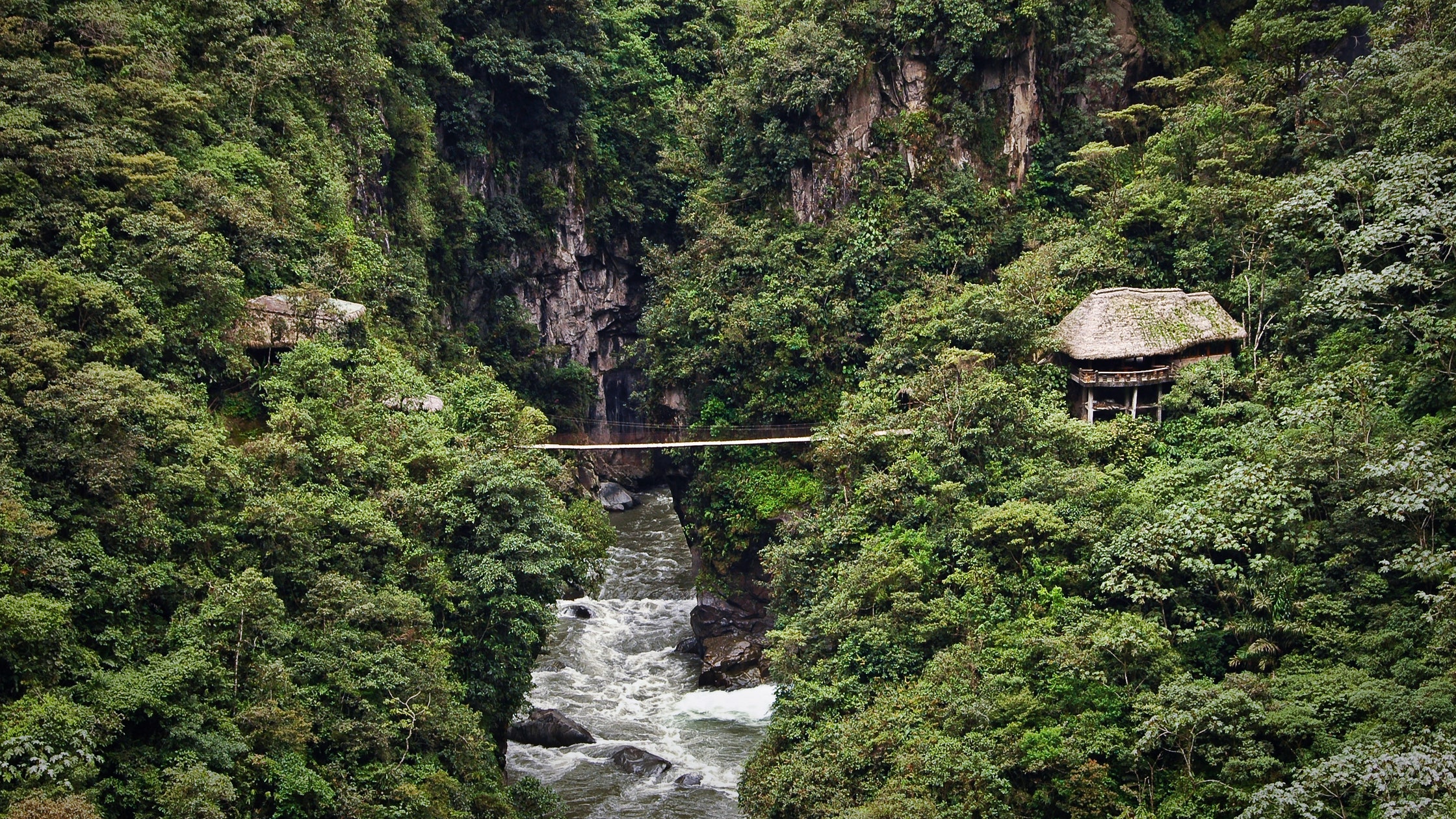How to Travel Better is a monthly column focused on sustainability. In this series, we introduce sustainability heroes, highlight experiences that enhance our world, and share ways we can all travel more responsibly.
My favorite memories from my travels as a sustainability editor come not just from staying at eco-friendly lodges but from unplanned conversations with purpose-driven individuals worldwide. For example, meeting Dutch-Malaysian artist Skaii De Vega as she built pirate ships from plastic waste with preschoolers in Langkawi or chatting with Roque Sevilla, a former mayor of Quito, about preserving Ecuador’s páramo ecosystem. Bumping along in a 4×4 through Knepp Estate’s rewilded thickets in West Sussex with Ned Burrell was another memorable experience as we looked out for free-roaming English longhorn cattle.
When it comes to our planet’s wellbeing, much relies on our collective efforts. In an industry dominated by large travel companies, these grassroots initiatives by 11 sustainability heroes are making a significant impact.
The Humanitarian Protecting Daintree’s Flora and Fauna
Kristin Canning helps hospitality sectors hit net-zero targets through Rainforest Rescue, an initiative focused on protecting Daintree’s fragile ecosystem. Canning believes businesses can be substantial change-makers. This NGO partners with organizations to safeguard lowland rainforests while supporting Indigenous practices.
“Lowland habitats are incredibly at-risk due to agricultural and developmental pressures, despite being home to unique flora and fauna,” Canning explains. Daintree’s rainforests house a significant percentage of Australia’s biodiversity. Unfortunately, it remains under-protected. Rainforest Rescue commits to enhancing carbon fixation, improving soil health, and restoring habitats. “Sustainable, green, and regenerative tourism is no longer a trend; it’s a movement where people choose to give back to the places they visit,” says Canning.
The Lodge Owner Saving Mountain Gorillas in Uganda
Lydia Eva Mpanga is a social worker and safari expert who founded Nkuringo Safaris when mountain gorillas were on the brink of extinction. Thanks to increased awareness and funding raised from gorilla trekking, their numbers have rebounded, with many residing in Uganda’s Bwindi Impenetrable National Park. Nkuringo promotes sustainable, community-led gorilla tours and wildlife safaris through their lodges.
Having witnessed the direct effects of deforestation, Nkuringo Safaris supports initiatives that benefit both environmental and social aspects of tourism. “Uganda’s young population means forested areas are often cleared for agriculture,” Mpanga notes, highlighting the interconnectedness of socioeconomic reform and environmental conservation.
The Michelin Green Star Chef in London
Chantelle Nicholson, a Michelin-star chef, leads Apricity, a fine-dining restaurant in Mayfair that embodies ethical and environmental practices. Nicholson integrates regenerative processes into every aspect, from sourcing to waste management, collaborating with local producers to enhance sustainability.
“The throwaway culture has led to a loss of value regarding food and goods,” says Nicholson. She demonstrates how restaurants can operate responsibly while valuing every element of their production processes.
The Captain of Industry Saving Ecuador’s Cloud Forest
Roque Sevilla, former mayor turned conservationist, has shifted his focus from insurance to forest preservation. A significant portion of Grupo Futuro’s profits supports its charity, Fundación Futuro, while its travel company has maintained carbon neutrality since 2017 through rewilding efforts and tree-planting missions.
Sevilla emphasizes, “Ecuador’s biodiversity is crucial for our future.” His initiatives encourage farmers to shift from agriculture to rewilding, creating impactful wildlife corridors that integrate conservation with sustainable tourism.
The Non-Profit Tackling Plastic Waste in Nepal
Project Sparśa, founded by Dipisha Bhujel, addresses plastic waste management in Nepal through compostable sanitary products. This social business provides economic opportunities while fostering awareness about menstrual health. By prioritizing local sourcing, they contribute to both community empowerment and environmental sustainability.
The Jordanian Community-Builder Tackling Tourism Inequity
Muna Haddad launched Baraka Destination to create sustainable, low-impact tourism experiences in Jordan. By working closely with locals, she designs enriching experiences that benefit communities and combat tourism inequity.
The Rewilding Restaurateur in West Sussex
Ned Burrell, from the Knepp Estate, promotes a healthy landscape through regenerative farming. He believes biodiversity loss is humanity’s greatest threat and showcases how rewilding can transform land use for greater ecological benefits.
The Filmmaker in the Bahamas Advocate for Marine Protection
Andre Musgrove, a freediving guide in the Bahamas, uses his documentary skills to raise awareness about marine conservation. He emphasizes the connecting threads between terrestrial and aquatic environments, urging visitors to reconsider their environmental impact.
The Malaysian Artist Upcycling Waste
Skaii De Vega transforms waste materials into artistic creations while providing employment to marginalized communities. Her projects emphasize the importance of sustainability and creativity in fighting plastic pollution.
The Ecofeminist Addressing Mental Health through Sustainability
Jennifer Uchendu merges climate action with mental health advocacy in Nigeria, creating safe spaces for discussions about eco-anxiety while fostering community-driven solutions.
The Charity-Entrepreneur Making Clean Water Accessible
Machiel van Dooren of the Made Blue Foundation is committed to addressing the global water crisis, providing clean water solutions while emphasizing the necessity of equity in resource access.




